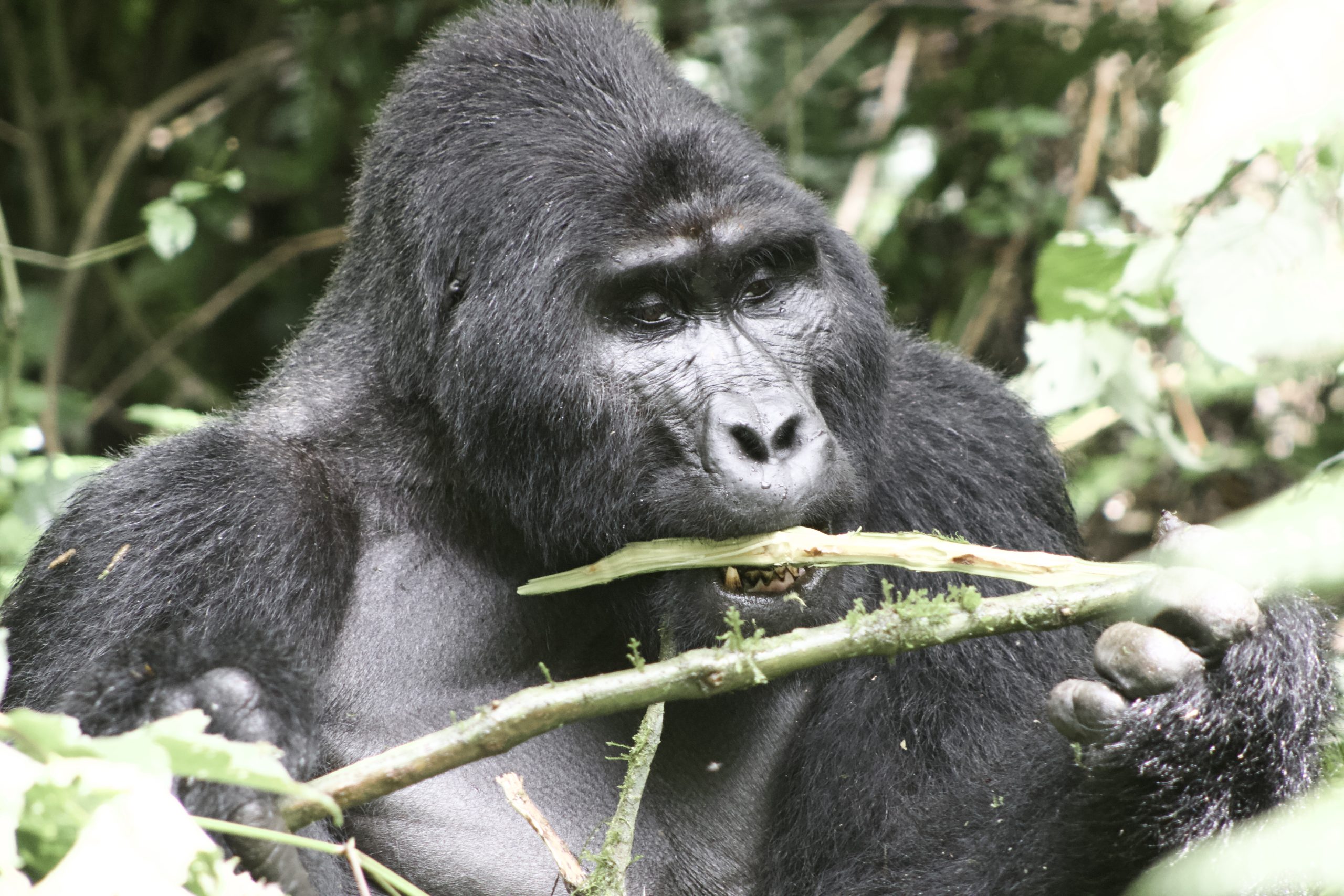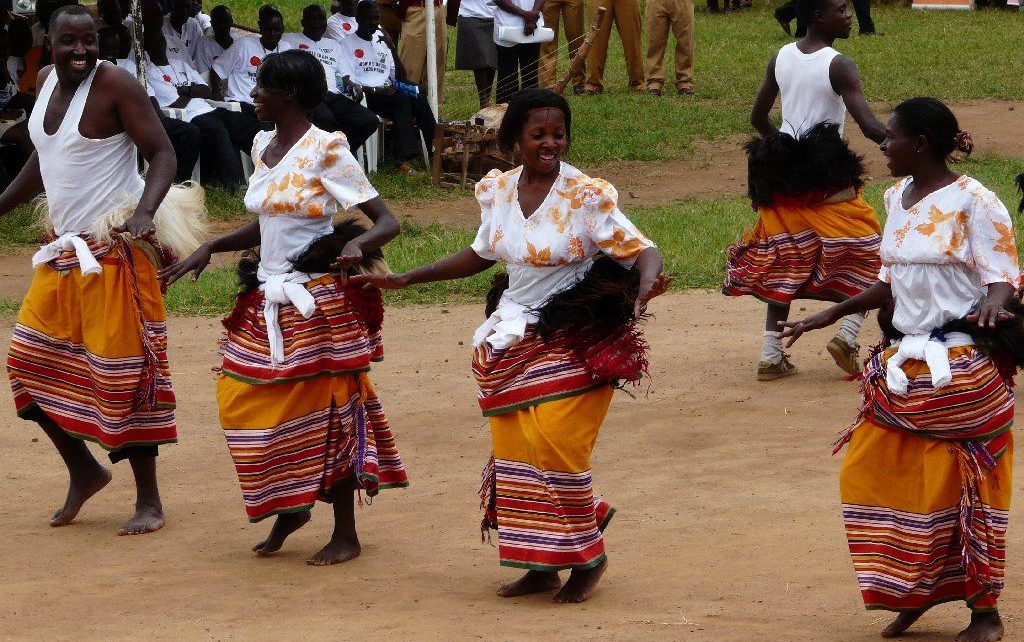OVERVIEW
About Uganda; On the East African plateau between the East and Western sections of Africa’s Great Rift Valley lies Uganda, the Pearl of Africa. It is situated West of Kenya, North East of Rwanda and Burundi, North of Tanzania. South of Southern Sudan and East of the Democratic Republic of Congo. This country, endowed with incredible beauty and a staggering history, was discovered in the 1800s by British explorers. These explorers were searching for the source of the Great Nile River, one of Uganda’s treasured gems.

Uganda’s vast wildlife
The Pearl of Africa hosts 345 mammal species, more than 140 reptile species, over 1,060 bird species, 1,249 butterfly species and half of the world’s endangered mountain gorilla population – many of which you will find in the various national parks. Additionally, Uganda hosts some of the endangered animal species in the world, such as the Northern White Rhinos, the golden monkeys, mountain gorillas, chimpanzees, African elephants, the Shoebill and several others. Surely, a wildlife safari in Uganda cannot leave you the same, especially because of the big five animals: the African lion, the Cape buffalo, the Southern White rhino, the African leopard, and the African elephant!
History of Uganda
Uganda got her independence in 1962 from the clutches of the British Empire, followed by a string of presidents. This was accompanied by numerous conflicts and the Ugandan Bush War (1980 to 1986). Not forgetting a devastating eight-year military dictatorship led by Idi Amin Dada Oumee. Fortunately, the country has since emerged prosperous under the firm rule of His Excellence Yoweri Kaguta Museveni, who has stamped out almost all political insurgence after the infamous bush war.
Culture
Uganda is named after the majestic Buganda Kingdom, which covers a large portion of the Southern part of the country, including the capital city – Kampala. Uganda boasts over 56 tribes with kingdoms in almost all the regions. These tribes exhibit colourful traditions and cultures through dressing, food, daily activities and entertainment.
Although the Baganda tribe is the most prominent one in the country, other tribes, such as the Acholi, Bagishu, Banyankole, Bakiga, Bakonjo and many others, work in perfect harmony to give Uganda a gripping cultural atmosphere.
The Buganda Kingdom is led by a king, also culturally known as the Kabaka. The Baganda people’s stable food is matooke (bananas), their traditional clothing is a gomesi for women (dating back to 1905) and the kanzu for men, and the maganda dance (traditional dance) is performed to entertain guests.

To the West, most notably, is the Banyankole. Their traditional dress is the Busuuti, and their traditional dance is the Kitagururo. Meanwhile, the Northern region has the unique Larakaraka and Agwara dances by the Acholi and Alur, respectively. Shake off the boredom with entertaining cultural ceremonies, such as the sizable over-the-top Buganda traditional weddings. Other traditions include the Bagishu circumcision ceremony and the Imbalu dance, which the locals perform joyously throughout the village, celebrating the transition of boy child to manhood.
Tropical Climate
Being crossed by the Equator, Uganda has abundant rainfall and a tropical climate. It is made distinctive by two rainy seasons, March to May and September to December. However, the Northern region, which forms one-quarter of the country, lies outside the tropical and thus experiences only one rainy season, March to October.
Uganda is generally a fertile plateau with a scattered rim of mountains. Some include the towering Rwenzori mountain ranges in the West and Mount Elgon in the East. There are also rolling hills, well-watered with fresh and salty water bodies and the Nile River that flows from the South to the North.
This beautiful country is also home to thick misty rainforests, woodlands, rolling savanna and terraced hills of Kigezi, dubbed the “Switzerland of Africa”. The conducive weather and fertile soils facilitate agriculture and animal rearing. Expect to see the long-horned Ankole cows as you drive West of the country and large lush green tea and sugar plantations in the East.
Languages
The official languages in Uganda are English and Kiswahili. However, because of its diverse cultures and welcoming people, the country has an array of spoken languages ranging from indigenous to international.
Religions
The commonly practised religions are Christianity and Islam, although other religions such as Hinduism have started taking root, not forgetting the endemic traditional beliefs still practised by the locals. Hence expect to feast your eyes on beautiful architectural buildings of churches, mosques, temples and shrines.
Food
The food in Uganda is to die for, prepared traditionally and modernly to suit all tastes and preferences. You will also get to eat Matooke(bananas), the staple food among the Baganda people. For the urban folks, feast on delicious dishes such as yams, sweet potatoes, pumpkins, and an occasional roadside Rolex.
Conclusion
Book your safari with Early Trails Expedition today and get a chance to fulfil your African safari dreams! We are committed to giving you the very best service and experience. Please feel free to contact us for any questions or questions.
